One of the most bewildering buffs you can get in DnD 5E is the ability to learn languages. Who cares about learning a new language in a system with Tongues and Comprehend Languages?
Well, it turns out there are some lexicons that are quite important to pick up. DnD 5E features several languages with scripts far different from the common language shared by all. Whether you want to save spell slots or be ready for heat-of-the-moment confrontations that will prevent you from realistically casting, it’s a good idea to know what people are talking about.
Top 10 best languages to learn in DnD 5E
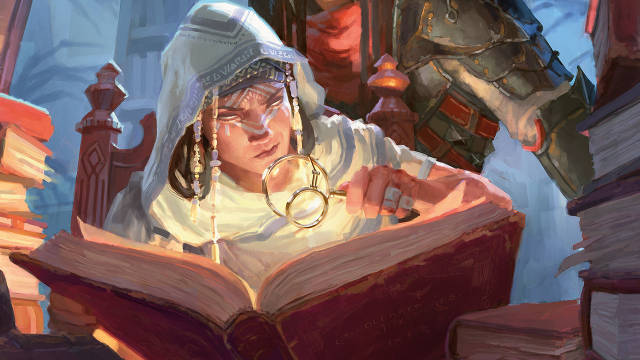
We chose our 10 best languages based on either commonality or importance. While some languages are so common that not knowing them can doom you out of social circles, others might lead to deadly situations if you don’t know what others are talking about.
As an important note, your DM is the best source to go to for language options. While we discuss a lot of important languages on this list, some of them might not show up in your campaign at all. These options might serve you well in emergencies, but your DM may change how this list works entirely. Be sure to chat with them before locking in any entry seen here.
10) Undercommon
- Spoken by: Underdark denizens
- Script: Elvish
Undercommon is a strange language. While primarily spoken by Underdark dwellers, it often makes its way to the surface through trade convoys and criminal markets.
It’s not the most common language in the world, but some of the shadiest places on the planet will use Undercommon religiously. And it’s not exactly easy to translate. Despite being an offshoot of Elvish, it takes a lot of turns that would cause even the most patient Elf to pause. The Underdark corrupts fully.
This language is best utilized by classes planning on being in black markets a lot. Rogues and Bards are common examples since they will find themselves haggling with Underdark traders for some of the best items in the game.
Most of the time, Tongues can cover Undercommon. So, only consider taking this language if you plan on being in the Underdark often.
9) Celestial
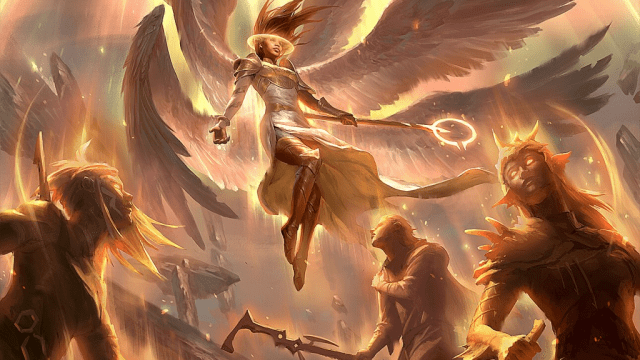
- Spoken by: Celestials (Angels, other members of the Upper Planes, usually good-aligned)
- Script: Celestial
The language of the Upper Planes is a very rare one. Not often do angels come down to speak with other people—let alone write them any notes. Angering a Deva or Planetar is an impressive feat and is usually only possible by the most evil of souls, so they’re rarely an enemy.
That’s why Celestial is such an interesting language. Even among enemy combatants, Celestial will very rarely be known. That makes it useful as a party’s go-to language to communicate with each other. Unlike lesser-known racial languages like Halfling and Gnomish, Celestial has its own strange script. This makes writing letters to one another more feasible.
Evil parties, such as ones with Oathbreaker Paladins, should learn Celestial for pretty simple reasons. Most truly good enemies worth worrying about are Celestial in nature. Learning this language lets you intercept in-combat conversations, forge letters, or gather unexpected information.
8) Primordial
- Spoken by: Elementals
- Script: Dwarven
Primordial is a language that takes Dwarven’s writing style, but it’s also a short-hand for all four elemental languages: Aquan, Auran, Ignan, and Terran. If you know Primordial, you know all four of these languages.
That’s an excellent deal. Aquan basically covers everything in the water capable of speech. The other three dialects are less popular but still fill up large swaths of intelligent elementals.
If your campaign plans on going to strange places, such as the Elemental Planes, then you owe it to yourself to learn all of the elemental languages at the same time. Even outside of those campaigns, though, being able to speak to most elemental creatures is a good idea. If they understand this language, they’re likely intelligent enough to parlay effectively.
7) Giant
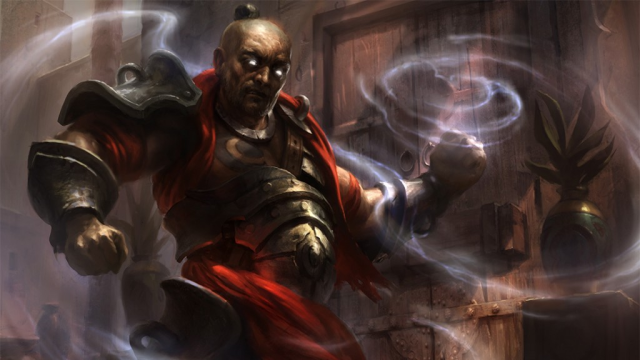
- Spoken by: Giants, Ogre
- Script: Dwarvish
Most campaigns will have either Giants or Orcs be a standard foe, so learning their language can make combat significantly easier. However, an Orc Barbarian will likely not be taking much combat advice from their friends.
The reason we chose Giant over Orcish—though this decision changes quite a lot depending on the campaign—is Giants are generally more represented as enemy groups. There are a lot of Giants and Ogres in 5E, making them common enemies for mid-game brawls.
It also makes them more varied and more likely to agree to peace. While intelligent Orcs tend to speak Common and Orcish, smart Giants may have never needed to speak Common, and thus stick to their racial language. Meeting them halfway with Giant can lead to good comradery with your larger companions.
6) Abyssal
- Spoken by: Demons
- Script: Infernal
Used by Demons, Abyssal is a very good language to have under your belt for mid and late-game encounters. In addition to Demons, this language is spoken by their servants and the cultists who worship them. Being able to understand what plans a Demon has for combat is a valuable asset.
Its use in combat also goes beyond demons—many Monstrosities and Undead also learn the language, with almost 200 monsters in official content being able to understand the language. You’ll be able to counter many spellcasters’ plans after learning Abyssal.
However, depending on the Demon you’re hunting, there might not be much talking during fights. Some play it completely by ear. So, while we appreciate its cult-breaking potential, it doesn’t break the top five on this list because of the chaotic evil tendencies of its primary speakers.
5) Elvish
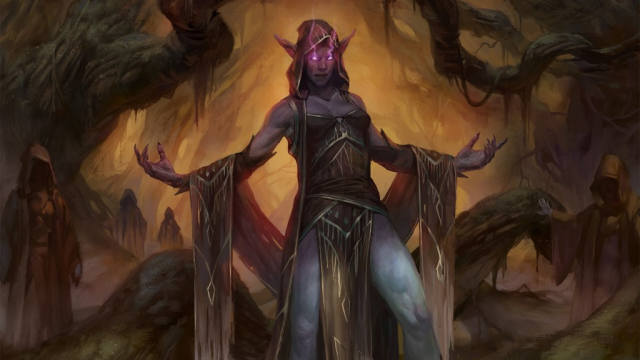
- Spoken by: Elves
- Script: Elvish
Elvish is a fluid and beautiful language appreciated by most creatures. It’s popular among Bards and storytellers since Elvish songs and literature are hidden behind its language.
It’s also fairly common as a baseline language for any adventurer. Many languages emulate Elvish script if they are old or Fey-inspired. Many puzzles and dungeons were made while Elves were alive, and they often serve as the architects of those stone vaults.
If you haven’t already, make sure there’s an Elf party member or one with a background that lets them take Elvish. Many spell slots can be saved if someone learns this ancient tongue.
4) Dwarvish
- Spoken by: Dwarves
- Script: Dwarvish
Dwarvish is both the exact opposite of and very similar to Elvish. While Elvish is a pretty language that fills the air with wind chimes, Dwarvish is hard and crunchy, like a Maul of verbal communication. Where Elvish uses additional grammar to add specificity, Dwarvish tends to get to the point quickly and professionally.
However, both of these languages share origins with dozens of other options. Whereas Elvish is the origin point of a lot of languages, Dwarvish is the written text for many different languages. Dwarvish text is fairly easy to decipher for races like Giants, Goblins, and Orcs. Even Primordial, the language of the Elementals, uses this text as a baseline for its written form.
Even if your campaign isn’t full of Dwarven NPCs, it’s still good to learn it. Like Elvish, this is a baseline for the language patterns of various races. Unlike Elvish, these races tend to be antagonistic by default, and thus learning and deciphering their language can be the key to a fight or navigating a dungeon.
3) Sylvan
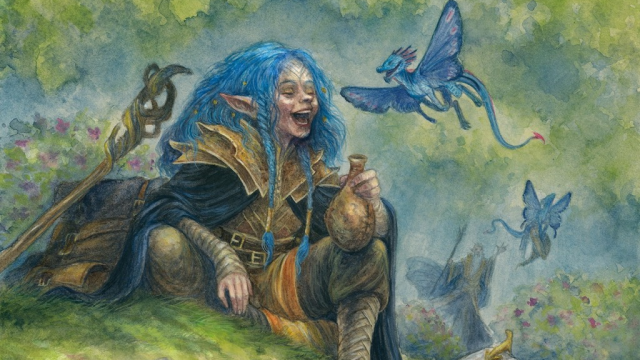
- Spoken by: Fey Creatures
- Script: Elvish
Sylvan is a language that doesn’t seem like a priority on the surface. Most Fey creatures speak Common, after all, so you can always talk with them like that. Tongues will do for any natural creature that can only speak Sylvan. Right?
Wrong.
It is so incredibly important for someone in your group to learn Sylvan. While Elvish can partially handle written scripts, knowing what a Fey is saying to another Fey or under their breath can be the difference between escaping an encounter unscathed or something far worse.
Fey will also be some of the first to notice a spell being cast, so Tongues or Comprehend Languages might be offensive to them. And offending a Fey is never a good idea.
2) Infernal
- Spoken by: Devils
- Script: Infernal
Infernal is a surprisingly important language for someone in the party to figure out.
Devils make up a much smaller chunk of the standard bestiary than Demons, but their natural Lawful Evil standing gives them an edge. That edge usually involves contracts, rituals, instructions, ethics codes, and more that Devils are likely to follow.
By learning Infernal, you are doing two things for yourself and your party. First, you’re much better at identifying when a Devil is throwing a party for a loop during combat. Devils and Devil worshippers are more likely to talk during a fight than their Demonic contemporaries. Through orders and guidance, Devils are able to take over cults with ease.
Second, you’re also more easily able to interact with Abyssal. While not a direct dialect, Abyssal uses Infernal’s alphabet for their written word. And many DMs will let you use History or Religion checks to get the gist of a Demon’s words if you have Infernal to back you up.
1) Draconic
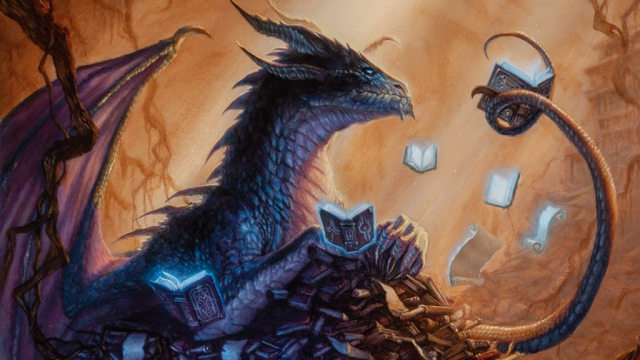
- Spoken by: Dragons, Dragonborn
- Script: Draconic
If you’re playing Dungeons & Dragons 5E, you better get ready to deal with a dragon or two throughout your adventure. Draconic is the native language of the Dragonborn and is used quite often for magical languages. If a dungeon has magical script on the wall, it is likely Draconic in nature.
Dragons also speak Draconic—shocking, we know—alongside Dragonborn and many other old-fashioned or magical races. That means over 300 monsters in official books speak Draconic.
It’s a useful language to have in any situation, letting you dungeon crawl without needing to cast Comprehend Language around every Draconic Rune while also letting you talk to the imposing dragoness in her native language without needing to cast spells first.
That’s why Draconic is the best language to learn in 5E—when it comes to magic, nothing really speaks anything else. And even if your DM prefers to keep Draconic to Dragons, knowing the language of one of the scariest creature types in the game isn’t a bad idea.


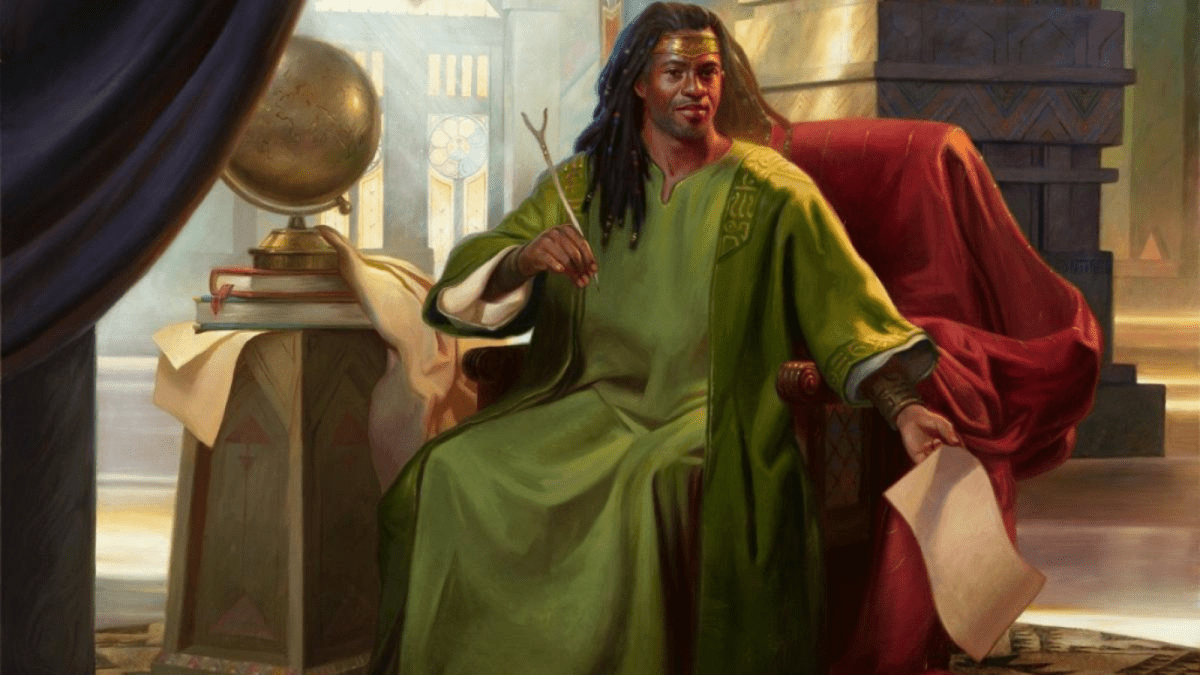
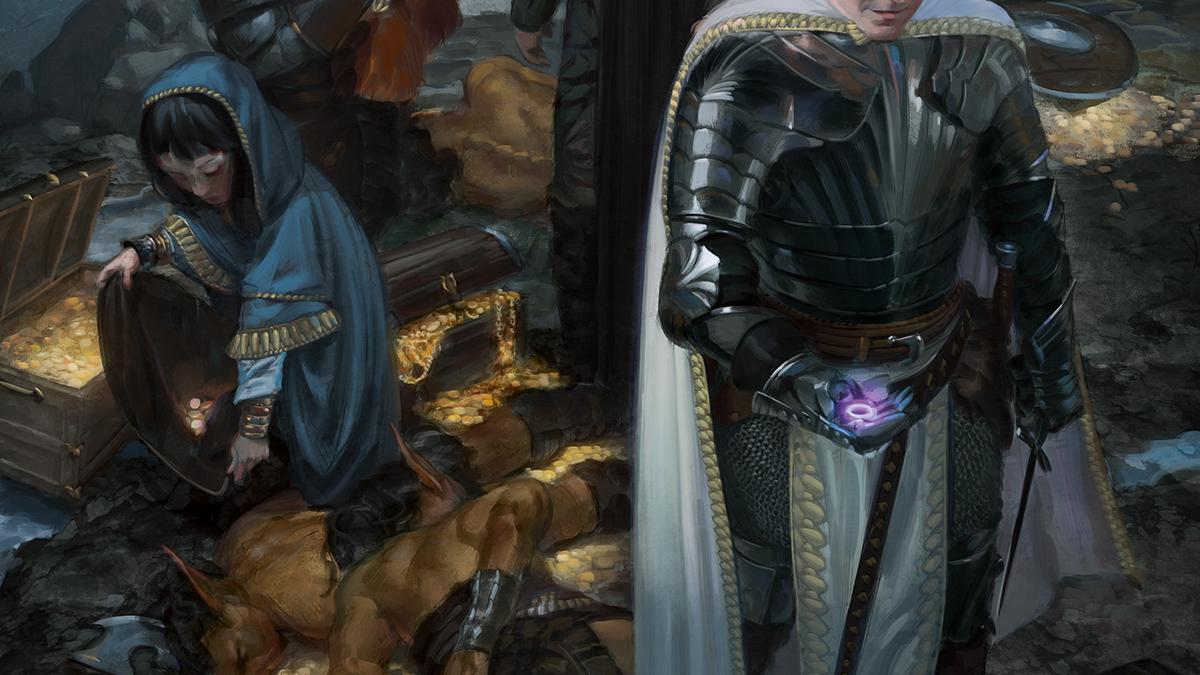

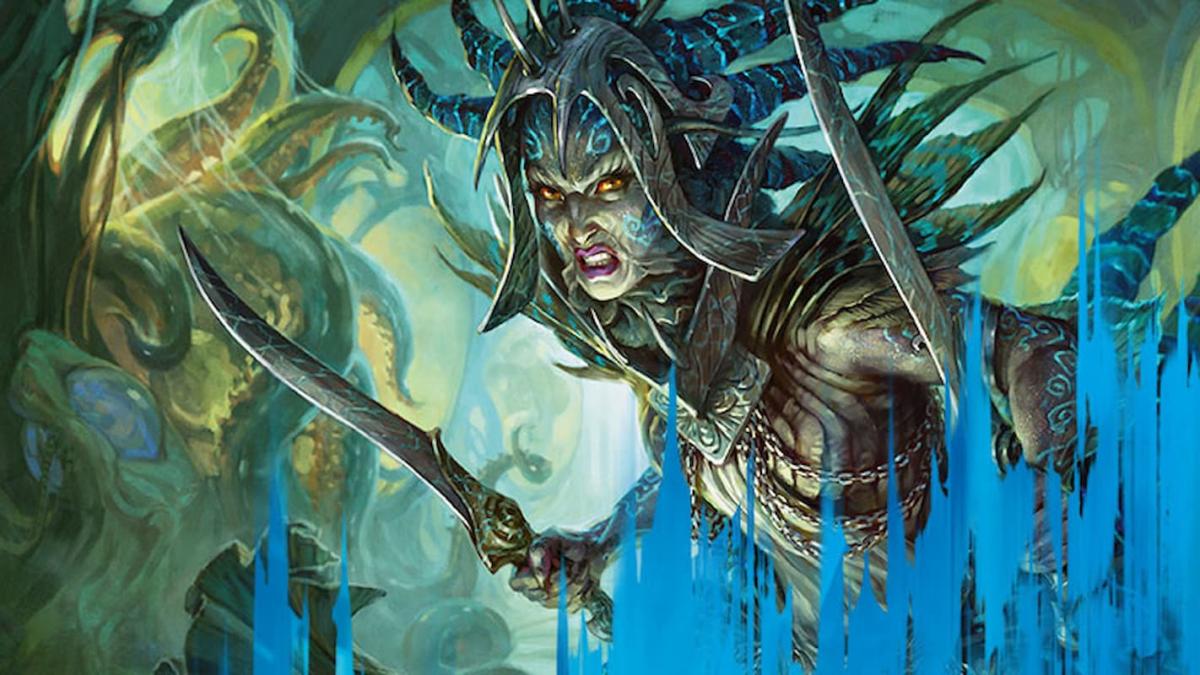
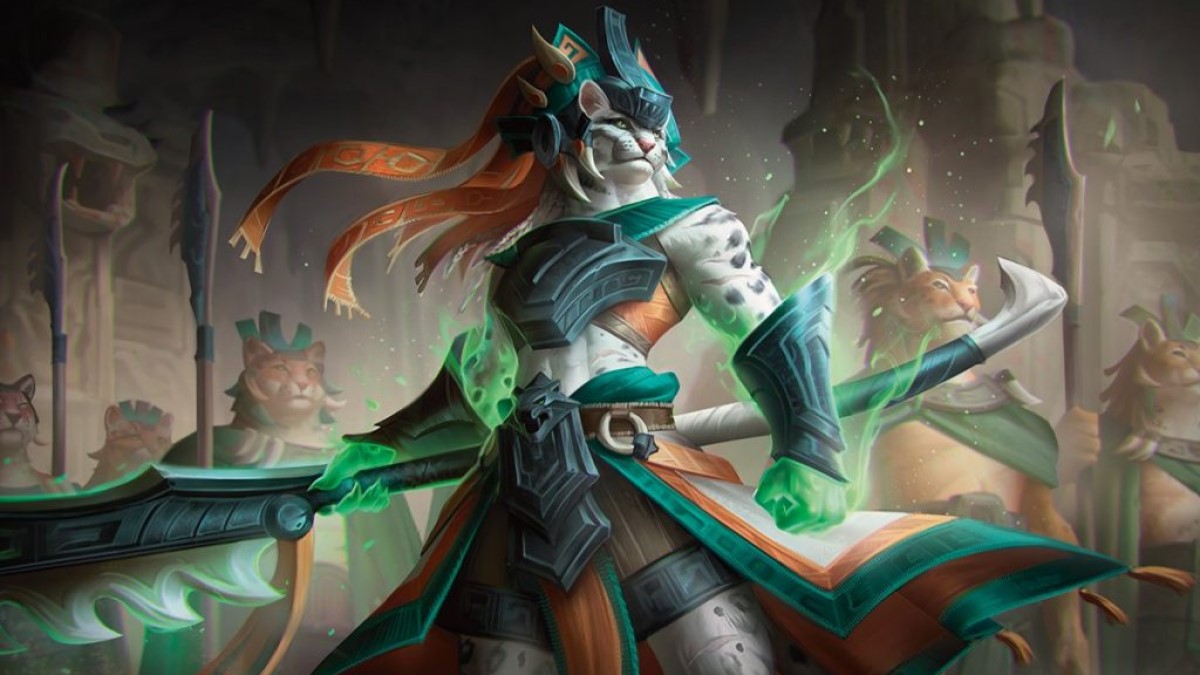
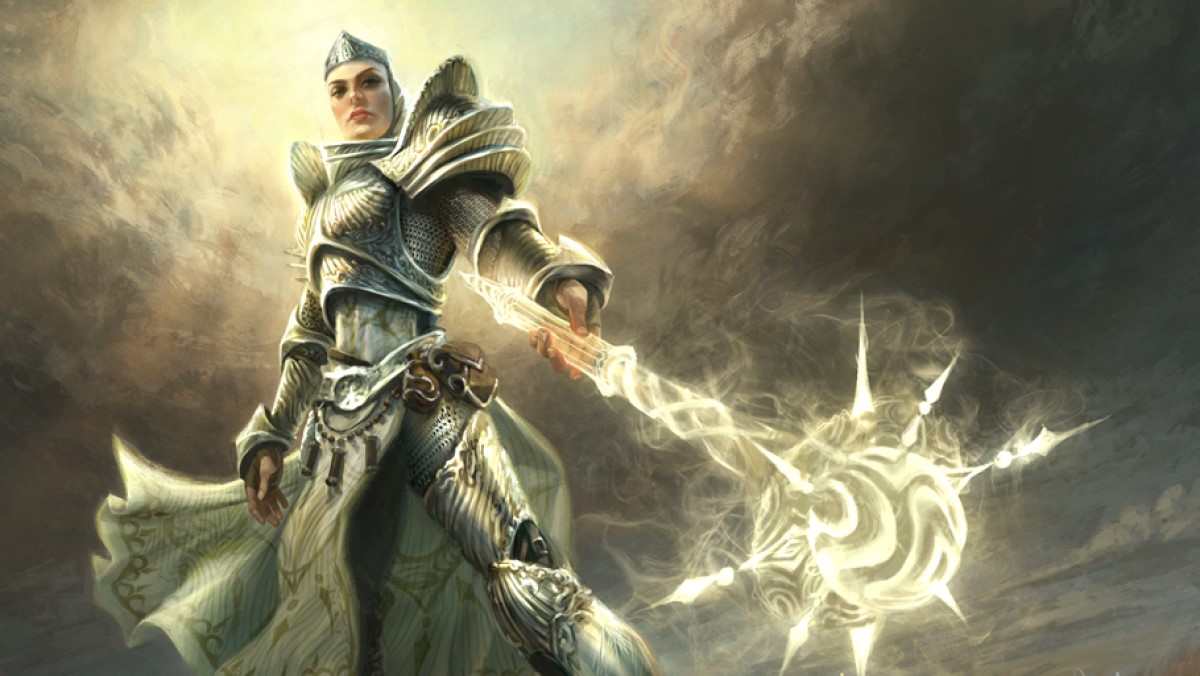



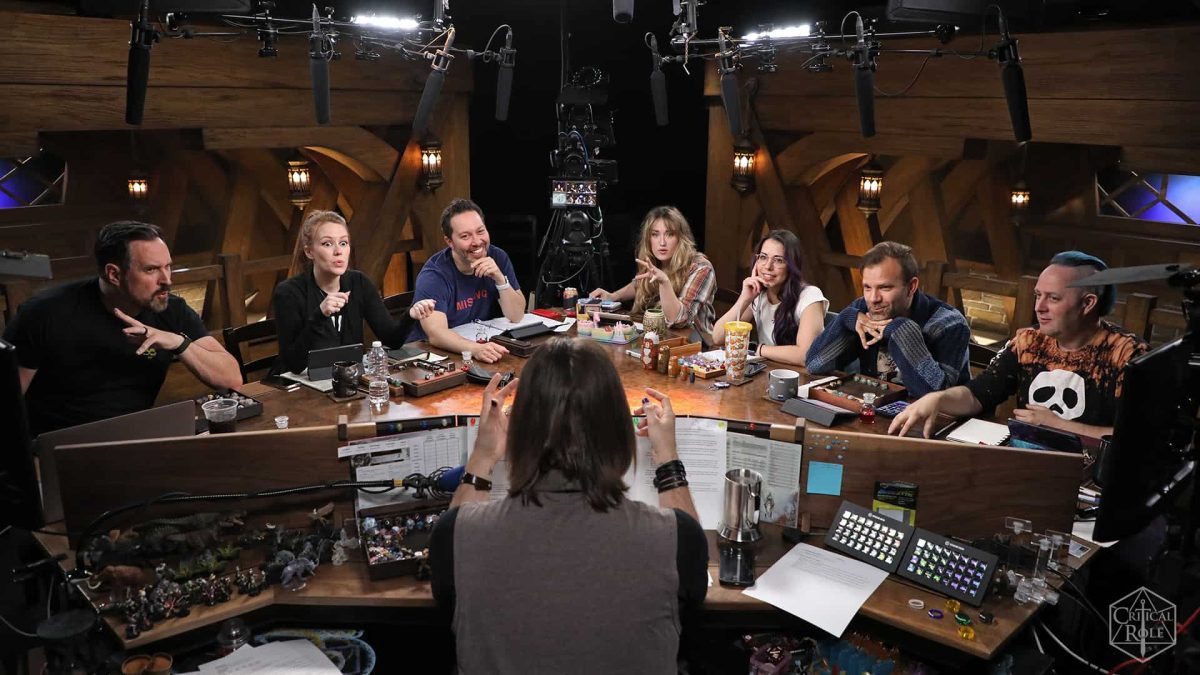
Published: Nov 10, 2023 09:39 pm